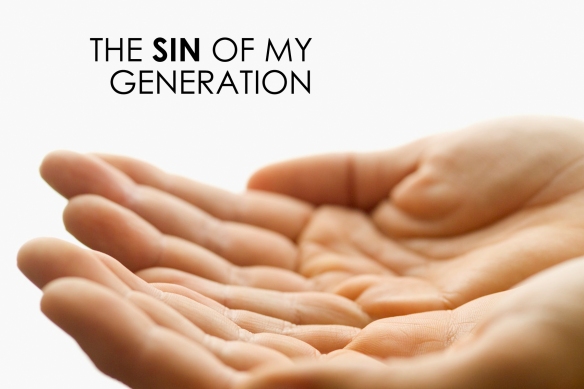 Last week I added a somewhat pointed post (click here to read) to my blog asserting that the sin of my generation is entitlement. I went on to elaborate on how we got here, and the long term effects of maintaining a pervasive entitlement epidemic among today’s young adults. And I meant every word. Yet I wasn’t done with just that post. There’s more that needs to be said to my generation regarding this issue of entitlement, which I eluded to in my previous post. So here are six things I need to say to today’s young adults:
Last week I added a somewhat pointed post (click here to read) to my blog asserting that the sin of my generation is entitlement. I went on to elaborate on how we got here, and the long term effects of maintaining a pervasive entitlement epidemic among today’s young adults. And I meant every word. Yet I wasn’t done with just that post. There’s more that needs to be said to my generation regarding this issue of entitlement, which I eluded to in my previous post. So here are six things I need to say to today’s young adults:
- Everyone knows your life is hard. Welcome to the club. It’s not that I don’t feel for you. Because I do, honest. You’ve likely had it much worse than I ever have. But you’re in good company. Focusing on how you’ve been wronged is only going to hold you back. Conquer your past. Be strong enough to overcome what others have done to you. Get counseling if needed. But drop the bitterness.
- Give more than you take. You owe the world a living, not the other way around. Stop trying to get what you can out of life, and start determining how you can make it better for the benefit of others. And don’t just settle for giving as much as you take. Over deliver on your life.
- You’ve got unimaginable potential. We live in the most exciting time in history! We have been recipients of the most advanced technology, creativity, and communication abilities. The world has gotten smaller before our eyes. We can learn practically anything within seconds. Most of our generation can barely remember life prior to the internet. The generation of teens coming after us has never known life without Facebook! We are one of the most coveted voting demographics of our time. We cannot afford to squander our opportunity. Your potential is limitless. Do something with it.
- Failure isn’t final. The only people who have never failed are those who have never attempted anything worthwhile. Your life won’t be significant because you’ve avoided failure, but because you’ve risked it. And if/when you do fail admit it, learn from it, and move on.
- Don’t be a narcissist. You’re life is not about you. Quit pretending otherwise. Pour yourself into others. By giving your life away, you find life. Choose to find your satisfaction in building others up rather than yourself.
- Don’t run from God. It’s a race you won’t win. My generation largely overreacted to the deficiencies we saw in previous generations. We discovered they were human, with flaws and everything. Some of them even claimed to follow God while secretly living a lie. Just because people have been fake doesn’t mean that God is too. And just so you don’t setup a new false expectation, know that religious hypocrisy is multi-generational. True God-followers are -well- like Jesus: full of grace and truth (John 1:14). Gravitate toward such people.
Blessings,
Pastor John



